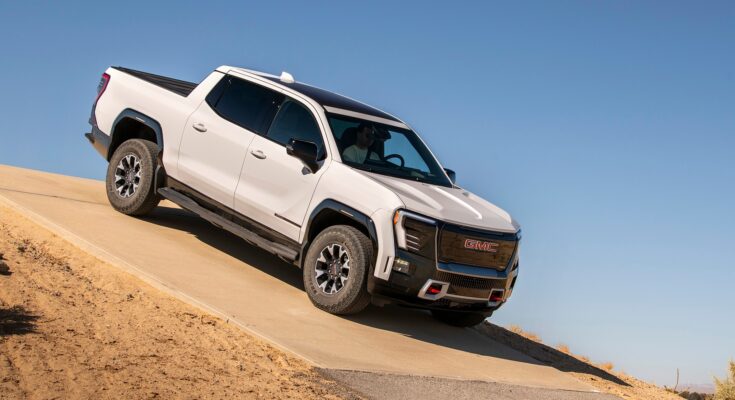Understanding Total Loss in Alabama: The Role of Insurance and the Policyholder’s Challenge
A car accident is a jarring event, and the subsequent insurance claim process can be equally disorienting, especially when your vehicle is declared a “total loss.” In Alabama, this specific declaration triggers a complex financial and legal process where the interests of the policyholder and the insurance company often diverge significantly. A total loss occurs when the cost to repair a damaged vehicle exceeds a certain percentage of its pre-accident Actual Cash Value (ACV), or when the damage is so severe that the vehicle cannot be safely repaired. Alabama law and insurance regulations set this threshold, but disputes over the valuation are common and form the core of why policyholders frequently require legal representation.
The Alabama Total Loss Formula and Valuation Disputes
Alabama operates under a “Total Loss Formula.” An insurer will typically declare a vehicle a total loss if the cost of repairs plus the salvage value meets or exceeds the vehicle’s actual cash value (ACV). While this sounds straightforward, the determination of ACV is where conflicts invariably arise. Insurance companies use third-party valuation software like CCC One, Mitchell International, or Audatex to generate a report that establishes the ACV. Policyholders often receive this report and a settlement offer that feels unfairly low. The discrepancies prompting dispute include:
- Inaccurate Pre-Accident Condition: Valuation systems rely on assumptions about a vehicle’s condition. If your car was in exceptionally good condition with low mileage, recent major services, or new tires, the automated report may not account for this, basing its value on “average” vehicles. An experienced lawyer knows how to challenge these assumptions with concrete evidence.
- Incorrect Comparables (Comps): The software selects recently sold vehicles in your region that it deems comparable to yours. These comps are often not truly comparable—they may have higher mileage, be a different trim level, or lack important features your vehicle had. Scrutinizing these comps is a critical step in disputing a low valuation.
- Undervalued Add-Ons and Aftermarket Parts: Did you install a custom sound system, a premium navigation unit, or a performance exhaust? Standard valuation tools frequently overlook or significantly undervalue these enhancements. Documenting these additions and their cost is essential for a fair settlement.
- Failure to Account for Dealer Retail Value: While insurers are obligated to pay ACV, which is closer to a private-party sale or trade-in value, the reality is that replacing your vehicle requires purchasing a similar one from a dealership at a retail price. The gap between ACV and retail cost can be thousands of dollars, leaving you unable to replace your car with a similar model. Lawyers argue for a valuation that reflects the true cost of replacement in the local market.
- Improper Deductions: Insurers may deduct excessive amounts for salvage value or make other questionable deductions that reduce your final payout.
The Insurance Company’s Playbook: Tactics and Bad Faith
It is crucial to understand that an insurance company is a for-profit entity. While they have a contractual duty to act in good faith, their adjusters are often incentivized to minimize payouts to protect the company’s bottom line. They employ tactics that, while not always illegal, are designed to pressure policyholders into accepting low offers quickly. These include:
- The Quick Lowball Offer: An adjuster may present a settlement offer swiftly after the accident, often before you have fully assessed the situation or your options. This offer is frequently below the vehicle’s true value, hoping you will accept it out of a desire for closure or financial necessity.
- Complex and Confusing Paperwork: The valuation report is filled with industry jargon and complex calculations designed to appear objective and final. Without specialized knowledge, a policyholder cannot effectively decipher or challenge it.
- Delay Tactics: If you reject the initial offer, the process can stall. The insurer may delay communication, requesting unnecessary documentation, knowing that you are without a vehicle and under financial pressure to settle.
- Misrepresenting Policy Terms or State Law: In some cases, adjusters may misstate the law or the terms of your own policy to justify a lower settlement.
When these tactics cross a line from aggressive negotiation into dishonesty or a refusal to fulfill contractual obligations, it may constitute bad faith insurance practices. Alabama law requires insurers to act fairly and in good faith when handling claims. An unjustified undervaluation, an unreasonable delay, or a refusal to investigate evidence presented by the policyholder can be a breach of this duty. A lawyer specializing in this field can identify bad faith and pursue not only the full value of the claim but also potential additional damages permitted under Alabama law.
How an Alabama Car Insurance Lawyer Fights for Your Total Loss Settlement
Engaging a lawyer shifts the dynamic entirely. Your attorney acts as your advocate, leveling the playing field with the insurance company’s legal and financial resources. Their process is meticulous and strategic.
- Immediate Case Evaluation and Investigation: A lawyer will first review your insurance policy, the accident report, and the insurer’s valuation report. They understand the fine print and the regulations that govern these disputes in Alabama.
- Building a Powerful Counter-Valuation: This is the core of the fight. Your legal team will gather evidence to build a robust counter-argument to the insurer’s low valuation. This includes:
- Obtaining independent assessments from trusted mechanics and body shops.
- Compiling proof of your vehicle’s pre-accident condition (photos, maintenance records, receipts for new parts or recent major services).
- Conducting their own market research to find comparable vehicles for sale at local dealerships that demonstrate a higher replacement cost.
- Hiring an independent, licensed appraiser to provide a formal valuation report.
- Strategic Negotiation: Armed with a dossier of evidence, your lawyer engages in direct negotiation with the insurance adjuster and their legal counsel. They understand the language of insurance law and valuation, preventing the insurer from relying on confusing jargon or weak arguments. They present a compelling case for why their valuation is accurate and defensible.
- Formal Demands and Litigation Threats: If negotiations stall, a lawyer will issue a formal demand letter outlining the evidence, the legal basis for a higher settlement, and a clear deadline for response. This letter signals your readiness to file a lawsuit, a costlier prospect for the insurer. It often prompts a more serious re-evaluation of your claim.
- Pursuing Litigation and Bad Faith Claims: When necessary, your attorney will file a lawsuit on your behalf. This lawsuit can seek recovery for the undervalued vehicle and, if evidence of bad faith exists, pursue extra-contractual damages. These can include compensation for emotional distress, economic losses from being without a vehicle, and in some cases, punitive damages designed to punish the insurer for its misconduct.
Critical Factors in Selecting the Right Alabama Lawyer for Your Case
Not all attorneys are equipped to handle the nuanced world of property damage and insurance disputes. When your financial recovery is at stake, you need a specialist.
- Proven Experience with Auto Total Loss and Insurance Disputes: Seek a law firm or attorney with a specific, documented track record of successfully resolving total loss valuation fights. General personal injury lawyers may not possess the deep knowledge of vehicle valuation methodologies.
- Resources to Fight Large Insurers: You need a firm with the resources to hire independent experts, appraisers, and economists to build your case. This is a critical investment in achieving a fair outcome.
- Understanding of Alabama Insurance Law and Bad Faith: The attorney must be thoroughly versed in Alabama’s insurance code and the body of case law that defines bad faith. This knowledge is what transforms a simple dispute over value into a potent legal claim.
- Clear Fee Structures: Most reputable lawyers in this field work on a contingency fee basis. This means they only get paid a percentage of the recovery they secure for you, ensuring their interests are aligned with yours. There are typically no upfront costs. Always discuss the fee agreement explicitly during your initial consultation.
The Policyholder’s Role: Actionable Steps to Strengthen Your Position
While your lawyer will lead the fight, your actions immediately after an accident can significantly strengthen your case.
- Document Everything: If it is safe to do so, take extensive photographs and videos of your vehicle’s damage from all angles and its interior condition. Photograph the mileage and any special features.
- Preserve Evidence: Keep all maintenance records, receipts for new tires, repairs, or upgrades in a safe place. This paper trail is invaluable.
- Do Not Accept the First Offer Immediately: Politely inform the adjuster you need time to review the valuation report. Do not feel pressured to sign a release or cash a check prematurely, as this can forfeit your right to further claims.
- Secure Your Own Comps: Quickly conduct online searches on platforms like Autotrader, Cars.com, and local dealership websites for vehicles of the same year, make, model, trim, and similar mileage. Save these listings as PDFs; they can disappear quickly.
- Request the Full Valuation Report: You are entitled to a complete copy of the insurer’s valuation report. Review it for errors in the listed condition, options, and comparables.

